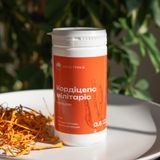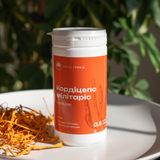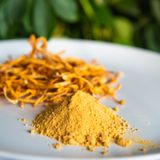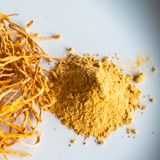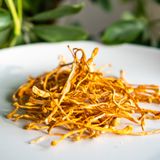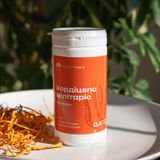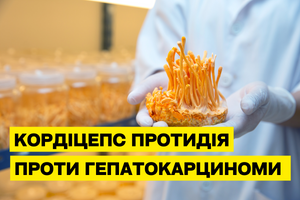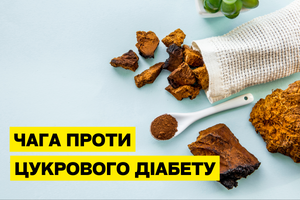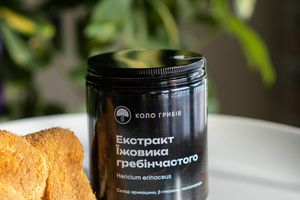The impact of Cordyceps militaris on the reproductive function of men with diabetes
Introduction
Diabetes Mellitus (DM) is a metabolic disorder characterized by chronic hyperglycemia - elevated blood sugar (glucose) levels above the norm. The number of patients with DM is rapidly increasing among both children and adults. DM elevates the risk of developing other related complications, such as atherosclerosis, peripheral vascular disease, hypertension, retinopathy, neuropathy, and reproductive system issues.
DM is often associated with sexual dysfunction in both men and women. It negatively affects male reproductive capability in humans and animals alike. Male patients with DM frequently experience sexual dysfunctions, such as reduced libido and impotence, disruptions in sperm formation leading to decreased mobility, concentration, and viability of sperm, erection and ejaculation problems, reduced serum testosterone levels, and antioxidant levels, which could even lead to infertility.
Conducted Research
A group of scientists from Thailand between July 2018 and September 2019 conducted research on the aphrodisiac properties of Cordyceps militaris in male rats with diabetes. This study aimed to investigate the impact of Cordyceps militaris on the reproductive function of male rats with diabetes and to understand the mechanism of action of Cordyceps militaris on the reproductive system in human diabetic complications.
Research Methods
The scientists induced diabetes in the animals by administering a special substance. Three days later, blood glucose levels were measured using a glucometer. Rats with high blood glucose levels were considered diabetic and used in this experiment. The animals were divided into four groups: Group 1 consisted of healthy rats given Tween (a substance that helps mix other substances together); Group 2 consisted of healthy rats given 100 mg/kg of Cordyceps militaris; Group 3 consisted of diabetic rats given a 1% Tween suspension (a substance that helps mix other substances together); and Group 4 consisted of diabetic rats given 100 mg/kg of Cordyceps militaris. The blood glucose level and body weight of the rats in all groups were monitored once a week throughout the experiment.
During the study, tests were conducted on sexual behavior, sperm concentration, their appearance and structure, after which the percentage of viability and deviations from the norm were determined. The level of testosterone in the serum and antioxidant system parameters were also measured, which helps to determine how effectively the body's protection system works against oxidation and damage.
Results
The research into the aphrodisiac properties of Cordyceps militaris in male rats with diabetes revealed significant positive effects on reproductive function. The group of diabetic rats given Cordyceps (100 mg/kg) showed significant improvement compared to the diabetic group (without treatment) in the following parameters:
- Serum testosterone levels increased by 308.3%
- The number of sperm increased by 89%
- Sperm motility increased by 18.2%
- Sperm viability improved by 10%
- MDA (Reduced oxidative stress) impacts the improvement of overall health and reducing the risk of developing chronic diseases. Improvement was observed by 29.73%.
- GSH (Increased antioxidant protection) helps protect cells from damage caused by free radicals and slow down the aging process. Improvement was observed by 62.8%.
- CAT (Improved detoxification) helps the body eliminate harmful substances. Improvement was observed by 18.19%.
Overall, there was an increase in sexual desire and a decrease in the time needed to initiate sexual activity, improvements in sexual stamina, and overall sexual function.
Conclusion
These results confirm that Cordyceps militaris has potential antidiabetic and aphrodisiac properties that can contribute to improving reproductive function in male rats with diabetes. According to this study, the use of Cordyceps militaris can be beneficial for reducing reproductive disorders caused by diabetes through its antioxidant properties and the ability to increase testosterone levels. The increased serum testosterone level after treatment with Cordyceps militaris may be responsible for improved sexual behavior and increased libido, reducing oxidative stress in testicular function, and can improve concentration, motility, and viability of sperm.
Interestingly, Cordyceps militaris stimulated sexual behavior not only in diabetic subjects but also in healthy ones. The study showed that the levels of testosterone and estrogen in the serum significantly increased after 2 and 6 weeks of taking Cordyceps militaris, which also indicates a high preventive effect.
Cordyceps militaris can be purchased in our store.
For each client individually, we draw up instructions according to his indicators and requests
Monthly course:
- Cordyceps militaris (whole/powder) 100 g - $27
- Cordyceps militaris capsules (180 capsules) - $34
- Cordyceps militaris extract (90 capsules) - $46
- Cordyceps militaris for 3 months (540 capsules) - $88
Other articles on the topic:
- Properties of Cordyceps militaris
- Cordyceps suppresses the development of arthritis
- Effect of Cordyceps militaris mushroom on vascular health
Contact us:





